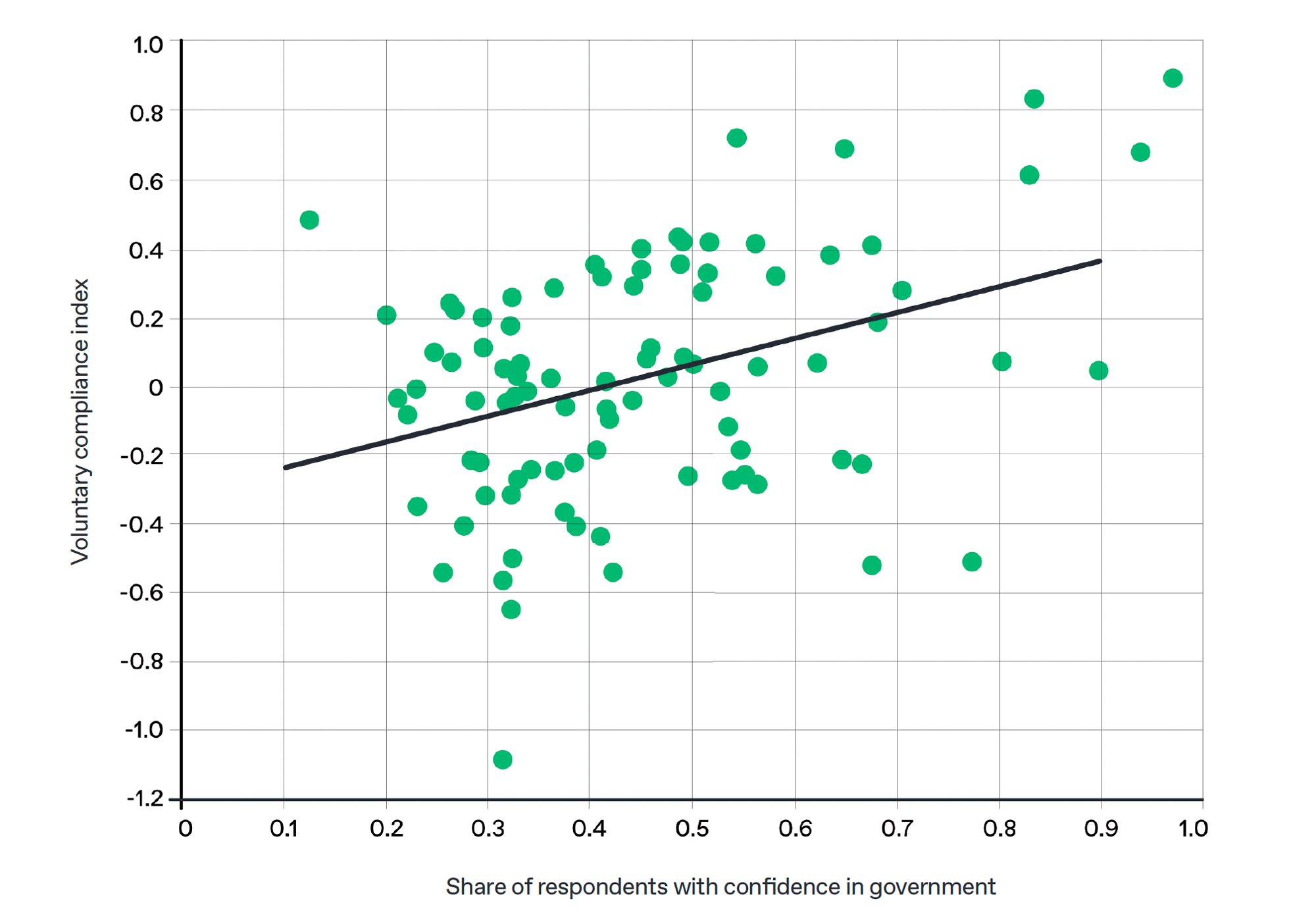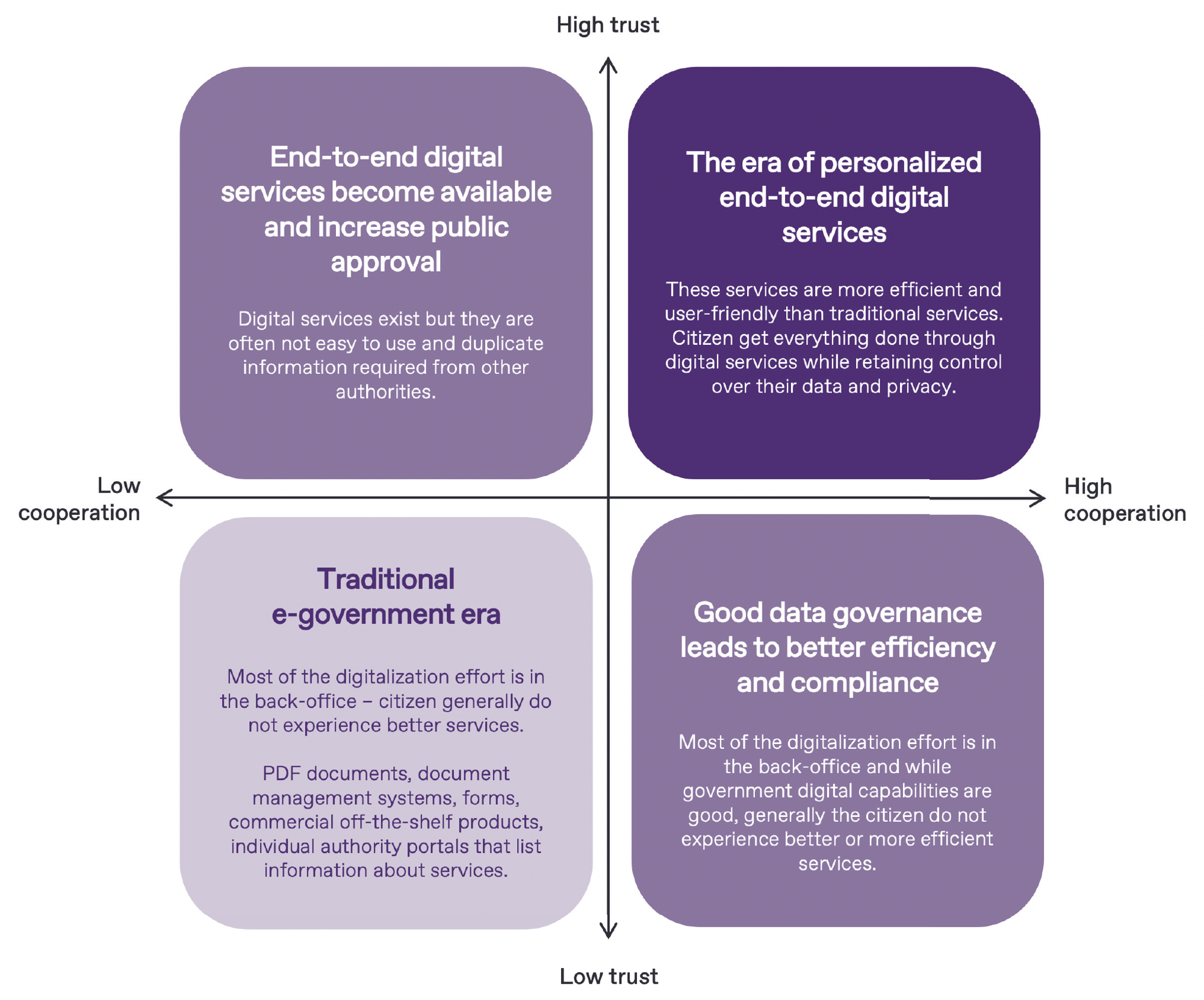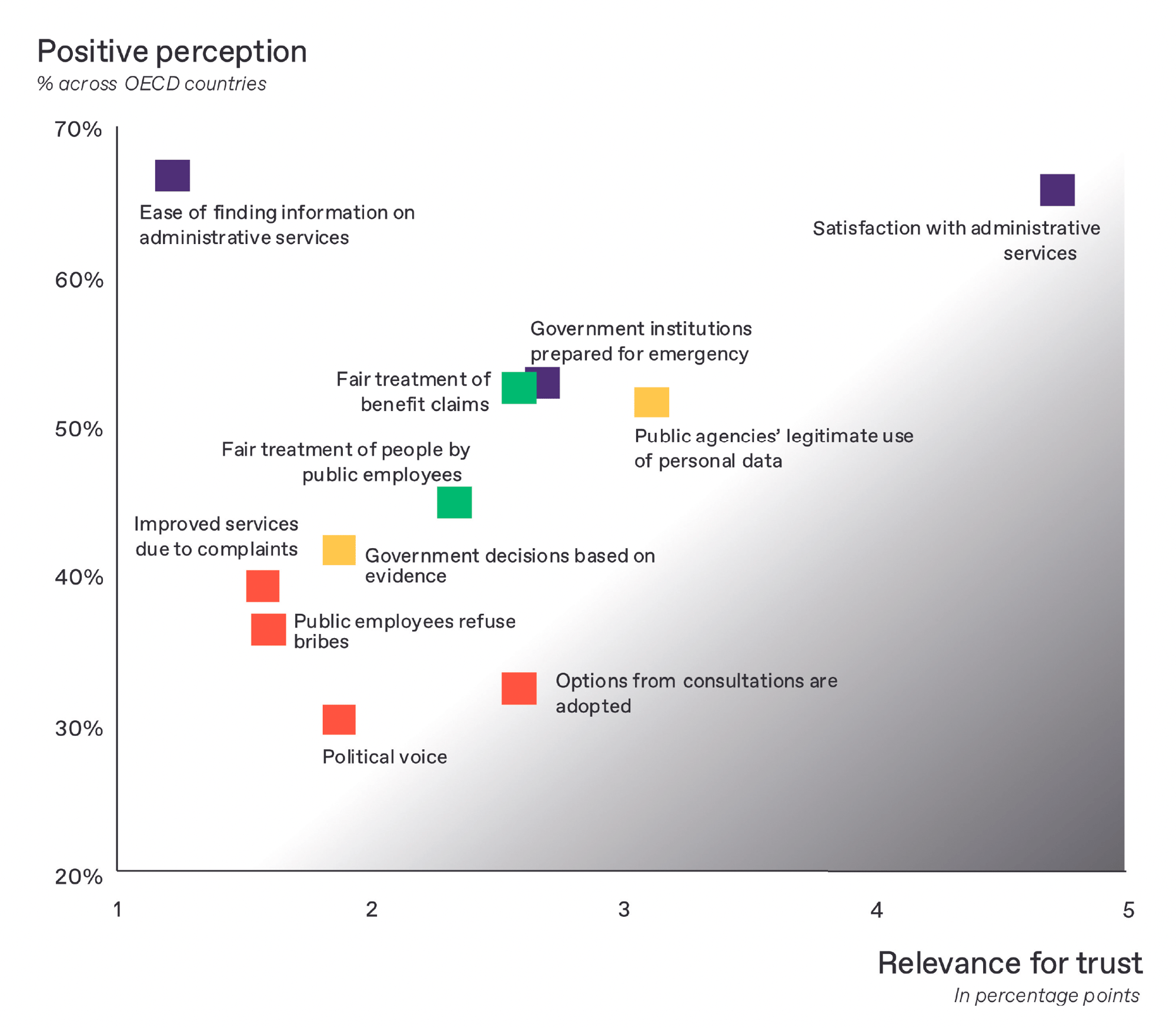Formula for creating trust in digital government
Trust is the backbone of democracy, giving governments the legitimacy they need to function effectively. Yet, as trust declines, public institutions face challenges in delivering progress on technological adoption and social development. This report explores practical and tech-driven strategies to help governments rebuild trust and improve service delivery.
In brief
Trust is our willingness to rely on others to act in our best interests, even when we can't directly control or monitor their actions. It's a fundamental part of how we interact and function as a society, as we expect consistent and positive outcomes from those we trust. While research has given us valuable insights into trust, it can sometimes complicate the basics.
At its core, trust boils down to three key elements: reliability—getting what we expect; fairness—feeling we deserve it; and transparency—having the ability to verify it. The way trust is delivered also matters, as the execution can greatly influence our perceptions.
This white paper explores these concepts and offers practical, tech-driven strategies for governments to rebuild trust and improve service delivery.
Key recommendations
1. Adopt modern service delivery channels to deliver end-to-end outcomes over fractured user experience. Invest in secure building digital public infrastructure to enable a higher maturity level of services.
2. Establish clear rules in data ownership, legitimate use of personal data by institutions, data protection and rules that make physical and digital transactions and services legally equal. Provide clear interpretation of rules.
3. Create services that enable real-time transparency concerning the use of personal data. Adopt mechanisms such as targeted transparency to increase voluntary compliance.
4. Ensure continuous small improvements in public service delivery over large reforms. Create procurement rules to enforce the mechanism. Utilize incentives and nudging strategies to shift users towards higher levels of voluntary compliance over time.
Trust and effectiveness
Research shows that high trust leads to policy effectiveness. The specific mechanism is voluntary compliance, which is especially valuable for government functions that would otherwise resort to enforcement by intrusion.

Figure 1. Trust and compliance, b countr. Source: Integrated Values Surve.
https://www.economicsobservatory.com/does-public-trust-in-government-matter-for-effective-policy-making
Trust as both enabler and dependency
The paradox of digital transformation – trust is needed to invest public capital in digital transformation, and at the same time, digital transformation will result in trust. It is both an outcome of the process and a necessary precondition for it. But such a virtuous cycle, where the initial trust level enables a digital service uptake and the usage of the same services starts to increase, trust can only be kickstarted when the initial trust level is there. So, building trust to a level when the positive dynamic sets in is a very practical question. From a certain level of digital maturity onward – like moving from traditional e-government to personal government – trust becomes a core enabler of governance as citizen willingness to share their data is a technical necessity of the system.

Figure 2. Source: Personal Government - a vision for a post-digital era of equitable and sustainable public services (2023). https://www.economicsobservatory.com/does-public-trust-in-government-matter-for-effective-policy-making
Formula on trust
Reliability, fairness, and transparency in public services are shown to have the most substantial impact on trust.
According to OECD Trust Survey 2024, satisfaction with services that provide outcomes has by far the most impact on trust and positive perception. Simply providing information online (fractured experience) does not significantly improve trust.

Figure 3. Components of trust formula mapped and plotted on OECD Trust Surve 2024. Source: OECD Surve on Drivers of Trust in Public Institutions – 2024 Results https://www.oecd.org/en/publications/oecd-survey-on-drivers-of-trust-in-public-institutions-2024-results_9a20554b-en/support-materials.html
Trust and effectiveness
Research shows that high trust leads to policy eff ectiveness. The specific mechanism is voluntarycompliance, which is especially valuable for government functions that would otherwise resort toenforcement by intrusion.
Trust as both enabler and dependency
The paradox of digital transformation – trust is needed to invest public capital in digital transformation, and at the same time, digital transformation will result in trust. It is both an outcome of the process and a necessary precondition for it. But such a virtuous cycle, where the initial trust level enables a digital service uptake and the usage of the same services starts to increase, trust can only be kickstarted when the initial trust level is there. So, building trust to a level when the positive dynamic sets in is a very practical question. From a certain level of digital maturity onward – like moving from traditional e-government to personal government – trust becomes a core enabler of governance as citizen willingness to share their data is a technical necessity of the system.
Formula on trust

Figure 1. Trust and compliance, b countr. Source: Integrated Values Surve.
https://www.economicsobservatory.com/does-public-trust-in-government-matter-for-effective-policy-making

Figure 2. Source: Personal Government - a vision for a post-digital era of equitable and sustainable public services (2023). https://www.economicsobservatory.com/does-public-trust-in-government-matter-for-effective-policy-making

Andres Raieste, Senior Vice President of the Public Sector at Nortal

Available on demand: The future of Tax Administration
Watch our insightful virtual discussion with industry experts as we explore the future of tax administration in the post-digital age. Discover how tax authorities will shift their role from revenue collection to becoming entities that create trust and empower economies.

Related insights
- Personal Government: A vision for a post-digital era of equitable and sustainable public services
- Post-digital personal government and the future of interoperability
- How Estonia uses proactive services to move towards a seamless society
-
Proactive public services - the new standard for digital governments
Ready to journey to the Personal Government
Get in touch to learn more about how to build a human-centered government, provide a better public service experience and efficient public administration.